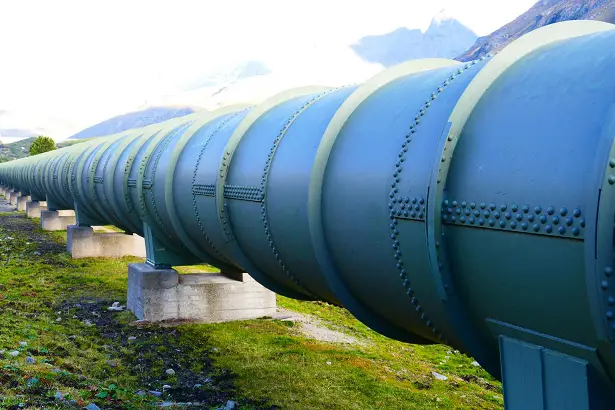Russian oil pipeline flows through Ukraine to parts of central Europe have been suspended since earlier this month due to Western sanctions preventing the pipeline from accepting transit fees from Moscow.
On the news international benchmark Brent crude jumped $2 per barrel to $98, although it lost the gains later in the day.
The cessation has affected flows along the southern route of the Druzhba pipeline, however so far it appears the northern route supplying Poland and Germany has not been affected.
The cessation of flows announced Tuesday will affect countries such as Slovakia, Hungary and the Czech Republic, all of whom are heavily dependent on the pipeline, and have limited ability to accept crude shipments by sea.
Given the already tight market, the fact refiners will have to import oil by sea will make replacing the lost supply even more difficult.
Hungarian energy firm MOL and Slovak pipeline operator Transpetrol have verified the story, noting pipeline flows have stalled over the issue of transit fee payments.
MOL said it had several weeks of reserves stored, and was looking for a workaround. MOL’s oil refiner Slovnaft has said it is exploring paying the transit fees itself, or through MOL.
Landlocked Hungary is among the most reliant of countries on Russian pipeline oil, due to having no ports. While Hungary can import crude through the Adria pipeline that connects to the Omisalj terminal in Croatia, the capacity of the route’s flow is limited, and it is much more expensive than the Druzhba pipeline.
Since Slovakia receives its imports from Hungary, its options are even more limited.
Poland is looking at receiving flows from Italy through the Transalpine (TAL) pipeline, however that line is already operating near capacity, and might not be enough to make up the missed flows.
The Czech Republic said it expects flows to return through the Druzhba within several days.
Russia’s Transneft, said it made its August payments to Ukrainian pipeline operator UkrTransNafta on July 22, however the funds were returned, and shipments were halted starting August 4th.
Transneft said in a statement that Gazprombank, which it used for the payment, said the money had been returned due to EU restrictions.
According to Transneft, under new EU restrictions, European banks must receive explicit approval from a relevant government authority before allowing any transaction.
Trasneft said in the meantime it has sent an official request to allow the payment to be made.
The southern leg of the Druzhba normally supplies roughly 250,000 barrels per day.

